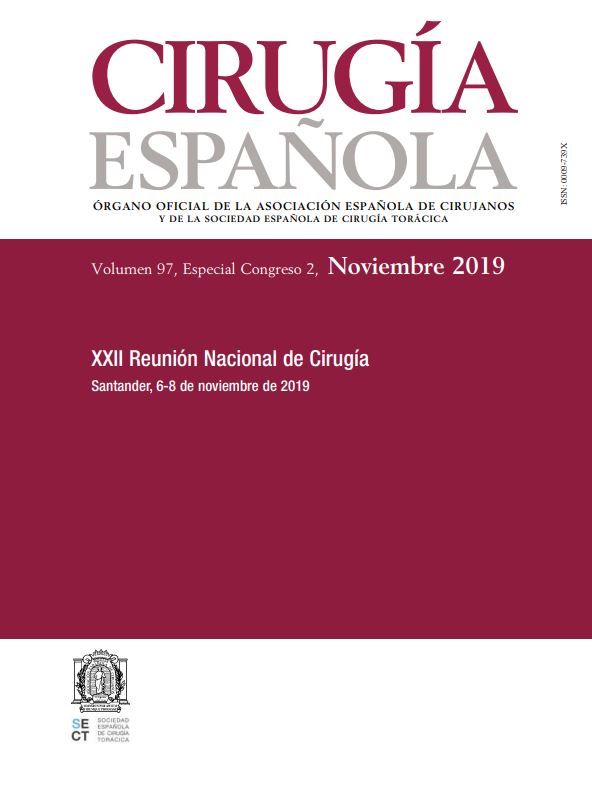P-274 - ROBOTIC PANCREATIC ENUCLEATION. EXPERIECE OF A SINGLE CENTER
Hospital de Madrid Norte-Sanchinarro, Madrid.
Introduction: The incidental detection of benign to low-grade malignant small pancreatic neoplasms increased in the last decades. The surgical management of these patients is still under debate. The aim of this paper is to evaluate the safety and feasibility of robotic enucleations.
Methods: We retrospectively reviewed our prospectively databases from October 2010 till November 2018. Demographics, pathological characteristics, perioperative outcome, and medium- term follow-up of patients who underwent robotic pancreatic enucleations were collected.
Results: 18 patients were included. The mean age of the patients was 61 years (48-74). The median body mass index was 26 (24-29). Ten lesions were located in the pancreatic head, 4 in the pancreatic body, 4 in the pancreatic tail. Operative time was 250 minutes (range 114-356), no intraoperative transfusion were needed and in one patient conversion to open approach was needed. In three patients grade B pancreatic fistula occurred. The mean postoperative stay was 8.4 days.
Conclusions: Robotic enucleation is a feasible and safe approach, with low incidence of morbidity.








